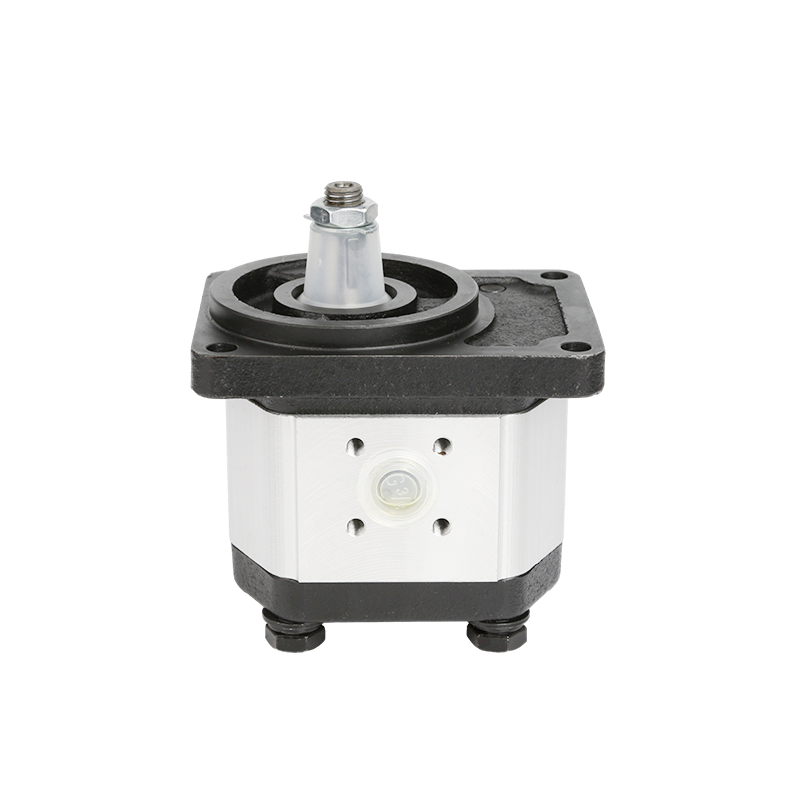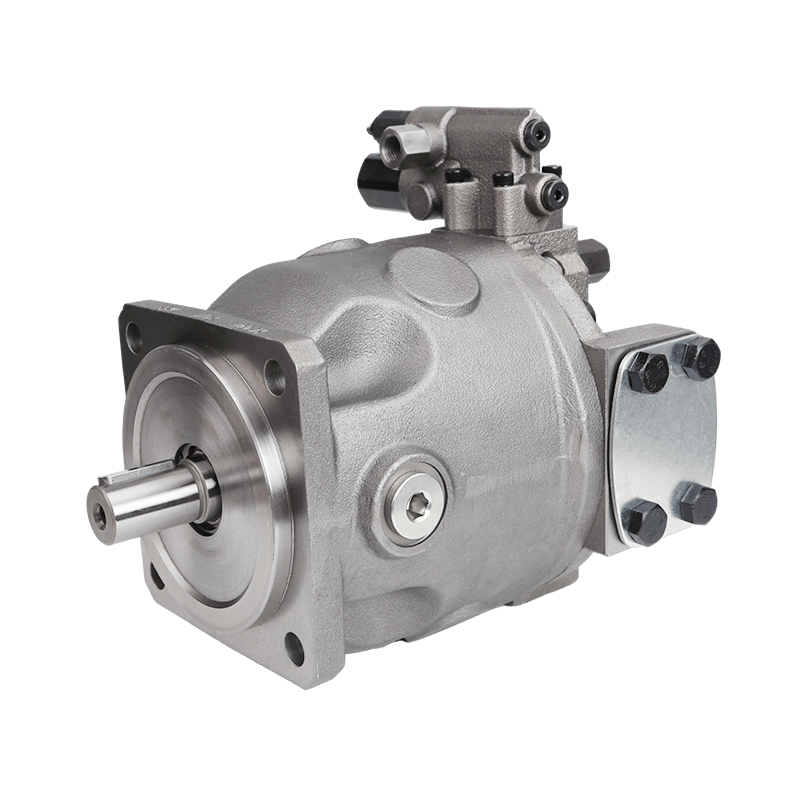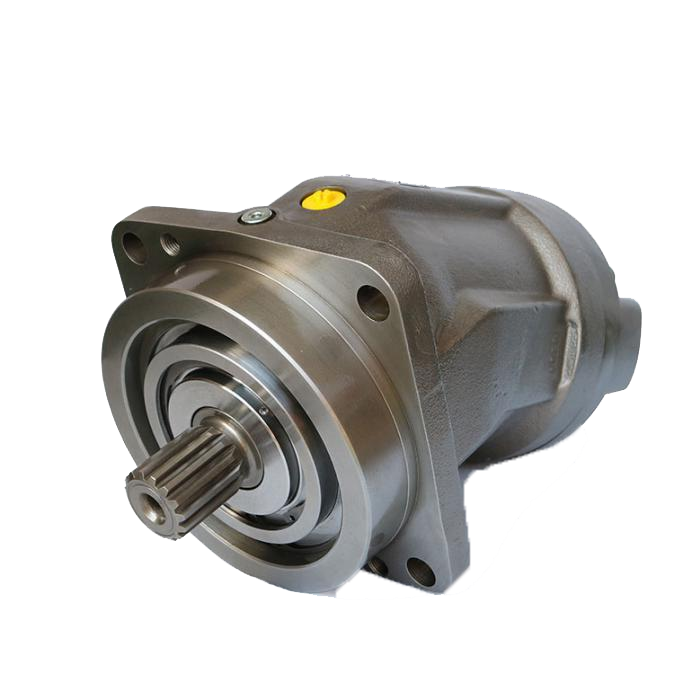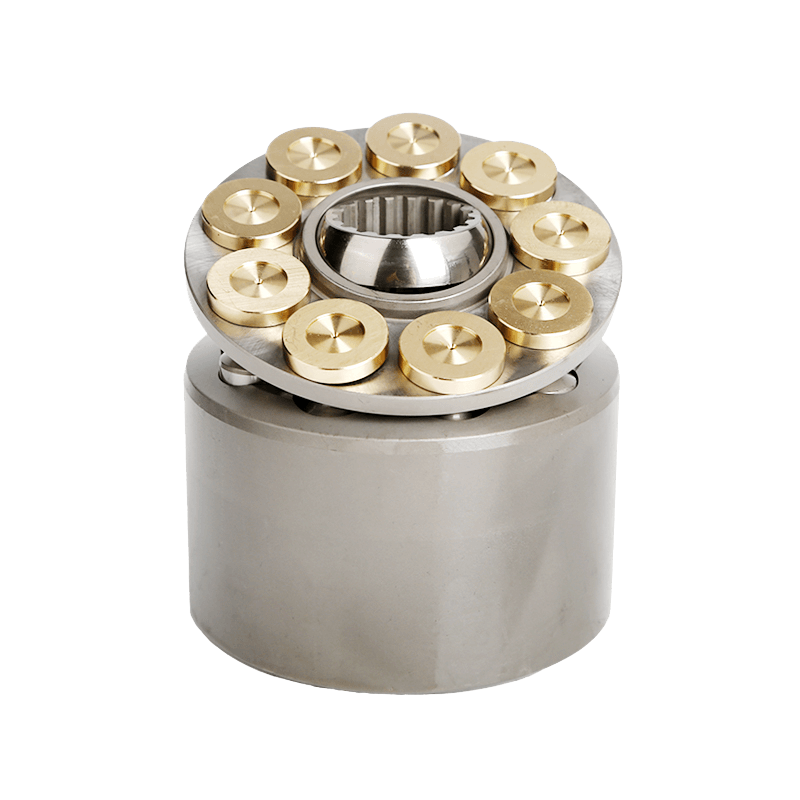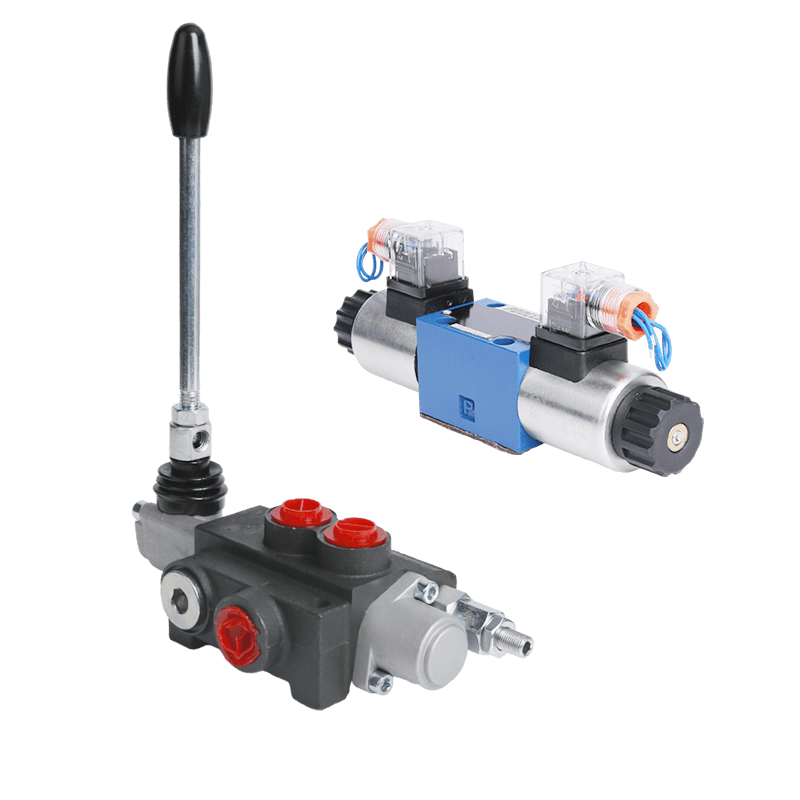What is Bent Axis Piston Pumps
A Bent Axis Piston Pump is a tool that turns mechanical power into hydraulic power. It uses pistons set at an angle to the drive shaft. This setup makes fluid transfer smooth and small in size. It’s great for tough jobs. To understand how a Bent Axis Piston Pump works, you need to know its parts and how it runs.
Key features include:
- Variable displacement: It adjusts flow rates easily.
- High-pressure ability: It handles strong pressure well.
- Small and tough build: It’s compact and lasts long.
- Quiet running: It makes little noise.
Bent Axis Piston Pumps are used in many fields, like building, farming, and making things. They keep working well under pressure. This makes them key for machines like excavators, tractors, and factory tools.
Bent Axis Piston Pump Working Principle
Working Principle
Pumps need good mechanics to work well. The Bent Axis Piston Pump is a great example. It turns spinning motion from the drive shaft into straight motion in angled pistons. This moves hydraulic fluid with each piston push. It creates a steady flow.
The pistons move in a bent axis setup. They change spinning motion into straight motion. This makes high pressure with great ease.
Piston Mechanism
The pistons sit at an angle to the drive shaft. This lets them work with the fluid while moving back and forth. Each piston pull and push moves fluid well. This creates steady hydraulic power.
Fluid Dynamics
As pistons move, they push out a set amount of fluid with each turn. This keeps the flow steady. The bent axis design helps build pressure without issues. It also lowers the chance of cavitation. The fluid moves directly and smoothly. This makes the pump more efficient than others.
Bent Axis Piston Pump Design Characteristics
Orientation and Configuration
The Bent Axis Piston Pump is built to work efficiently. The angle between the cylinder block and drive shaft helps transfer force well. It also keeps the pump small in size. This design makes it fit in tight spaces.
Component Materials
The pump uses strong, rust-proof materials. These ensure it lasts long in tough places. The materials cut down wear and stop leaks or dirt from harming the pump. This boosts how well it works.
Efficiency and Performance
Several things affect how well a Bent Axis Piston Pump works:
- Operating pressure: High pressure can lower efficiency a bit.
- Fluid thickness: Thick fluids may slow the pump.
- Temperature: Changes in heat can affect how the pump acts.
- Mechanical shape: Wear or damage can hurt performance.
Efficiency ties to how well the pump runs in different settings. Checking things like displacement volume per turn, pressure level, and flow rate helps keep the pump working great.
Bent Axis Piston Pump Maintenance and Troubleshooting
Regular Maintenance
Keeping the pump in good shape is super important. Check it often for leaks, odd sounds, or weaker performance. Doing this keeps the pump working well.
Common Issues
Some problems that might happen include:
- Dirty hydraulic fluid
- Worn-out seals or bearings
- Misalignment causing shakes
- Strange noises showing inner problems
Dirty fluid can cause big damage. It may lower efficiency.
Maintenance Best Practices
Swap out hydraulic fluid and filters often. This helps the pump work better. Keep moving parts like pistons and bearings well-oiled. Use only parts approved by the maker to stay safe.
Bent Axis Piston Pump Advantages and Disadvantages
Strengths of Bent Axis Design
The main benefits are:
- High energy efficiency: It turns power into hydraulic energy well.
- Small size with strong power: It’s compact but powerful.
- Low noise: It runs quietly.
- Flexible flow control: You can adjust displacement easily.
The bent axis setup makes energy conversion super efficient. Fewer moving parts make maintenance easier. This also cuts costs over time.
Limitations and Challenges
Even with benefits, there are some downsides:
- Tricky assembly: Setting it up can be hard.
- Less effective at low speeds: It may not work as well slowly.
- Sensitive to misalignment: It can have issues if not lined up right.
- Specific flow direction needs: This can limit some uses.
Problems like misalignment or flow direction needs must be considered.
Summing Up
The Bent Axis Piston Pump works in a unique way. It uses pistons in a bent axis setup to move fluid efficiently. Its design supports high-pressure output. It also fits in small spaces. With adjustable displacement angles, it offers custom control over flow rates. This pump delivers strong performance in many industries.
FAQ
What maintenance practices are recommended for Bent Axis Piston Pumps?
Regular care is key to keep a Bent Axis Piston Pump working well. Check fluid levels often. Look for leaks. Inspect for wear or damage. Clean parts regularly. Use clean fluids to keep the system strong.
In what applications are Bent Axis Piston Pumps typically used?
Bent Axis Piston Pumps are used where high-pressure fluid is needed. This includes mobile equipment, factory machines, and aerospace systems. Their toughness makes them great for tough jobs like construction or hydrostatic transmissions.
What are the main advantages of using a Bent Axis Piston Pump?
These pumps are highly efficient. They handle changing flow and pressure well. They run quietly. They also last long in tough conditions.
How does the angle of the pistons affect the pump’s performance?
The piston angle affects displacement and performance. A steeper angle increases displacement per turn. But it may need more space or support, depending on the system.
What is the working principle of a Bent Axis Piston Pump?
A Bent Axis Piston Pump turns spinning motion into hydraulic energy. The pistons are set at an angle to the drive shaft. This bent setup drives the pump’s action.
Choose POOCCA Bent Axis Piston Pump
POOCCA Hydraulic (Shenzhen) Co., Ltd., started in 2006, is a leading provider of hydraulic solutions worldwide. With over 26 years of know-how, POOCCA makes hydraulic pumps, motors, valves, and parts. They offer custom solutions for fields like building, farming, marine, oil and gas, and more. Their facilities cover 8,000 square meters. They use high-tech tools like CNC gear grinders and measuring machines.
When picking your next hydraulic solution provider, go with POOCCA. They’re a trusted brand for Bent Axis Piston Pump needs. POOCCA offers tough, precise options built to last.

